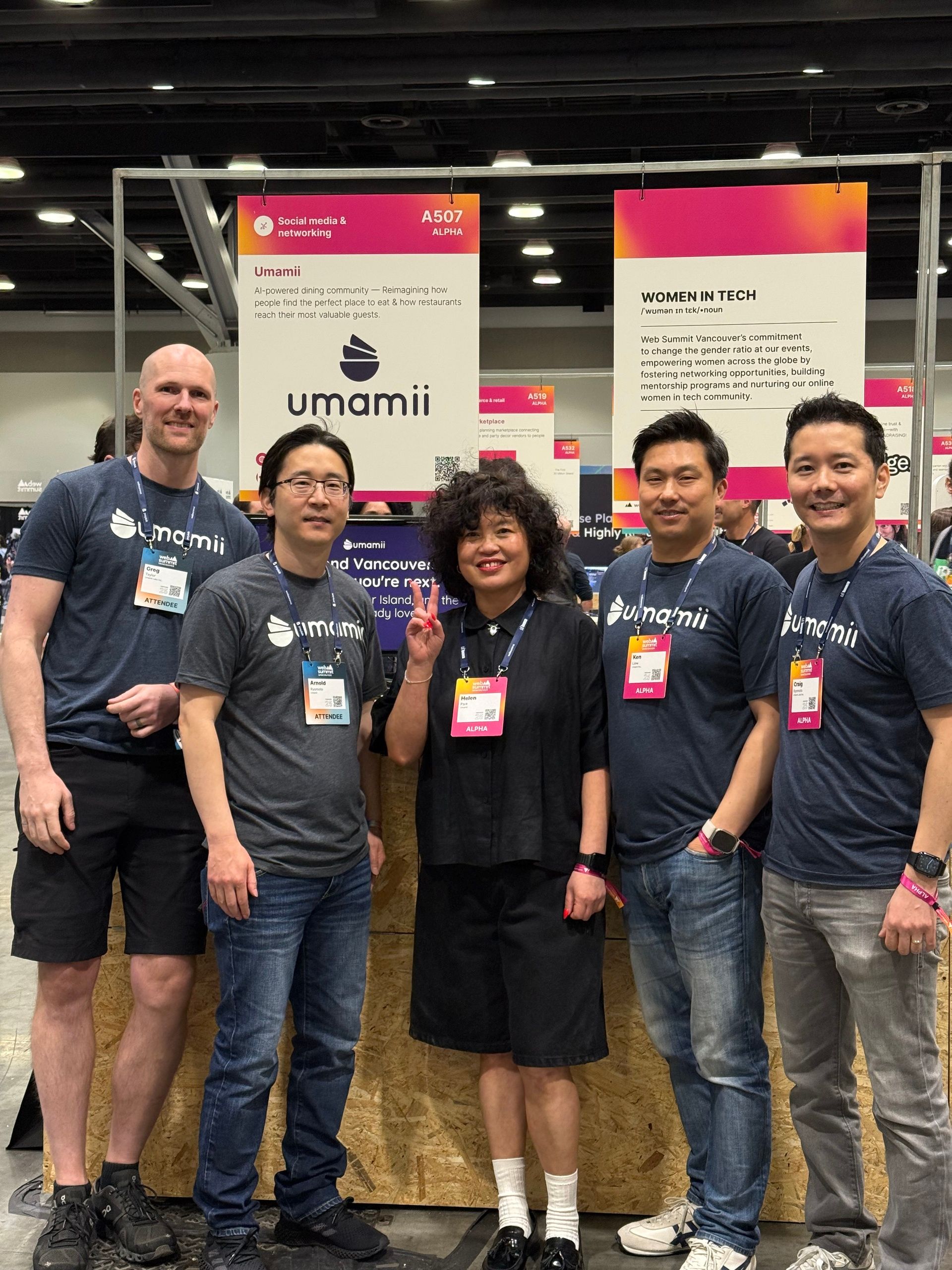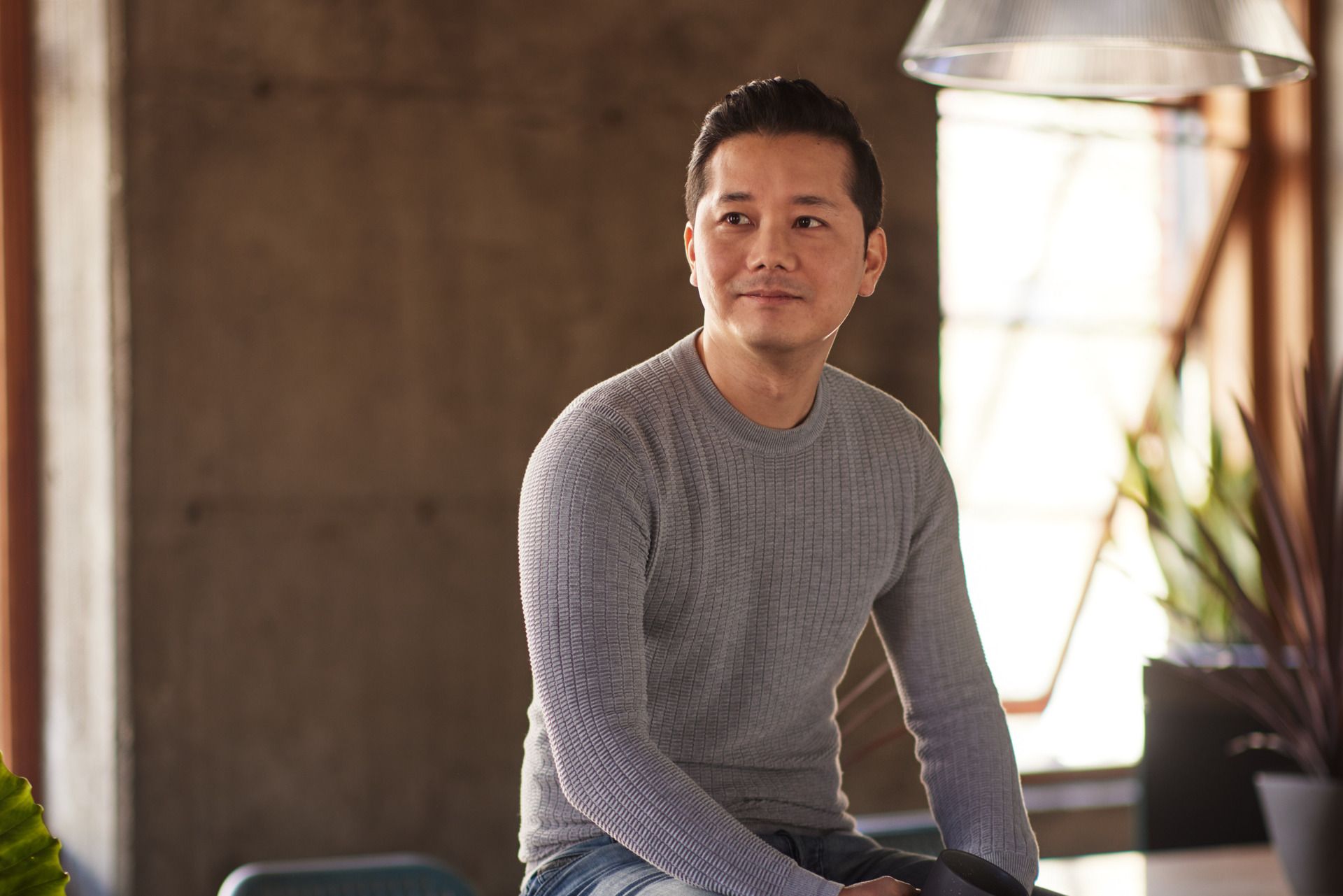
The Umamii team at Web Summit (Credit: Umamii)
When Vancouver founder and longtime tech operator Craig Ryomoto was travelling through Japan in 2023, he expected restaurant decisions to be easy. He’d been to the country a dozen times. He knew how to navigate local blogs. He could read Japanese. He trusted Michelin stars and Google reviews. But now he was travelling with his young son—and suddenly everything broke.
“There wasn’t a shortage of information,” he says. “It was the opposite. There was too much of it. Blogs, YouTube, Instagram, Michelin, Google reviews—you’re bombarded. And the hardest part is knowing who to trust.”
That moment—standing in a Tokyo neighbourhood, his son tugging at his leg, hungry at 11 a.m.—became the spark for Umamii, the Vancouver-born restaurant discovery and community platform that officially launched this week after a BC-wide beta and a soft roll-out in the GTA.
“It should’ve been an easy decision,” Ryomoto recalls. “But I couldn’t tell which reviews were paid for, and I didn’t know if the people reviewing places actually liked the same food I like. Finding somewhere good, quickly, became surprisingly difficult.”
A food problem powered by a tech leader’s background
Ryomoto has spent more than a decade helping scale some of Canada’s best-known tech companies, including Hootsuite (VP of Growth), Bench Accounting (first Chief Revenue Officer), and Thinkific (CRO through IPO). But his connection to food goes even deeper.
His family ran Ota-Ya, one of the first Japanese restaurants on Richmond’s Alexandra Road—now famously home to a dense strip of Asian eateries. “My family kind of created that Asian row,” he says.
With Umamii, he’s merging those two worlds: a technology career built on growth and community, and a lifelong personal connection to hospitality.

Umamii CEO Craig Ryomoto (Credit: Umamii)
The problem: trust in restaurant discovery is broken
In Ryomoto’s view, today’s discovery tools aren’t designed for how people actually choose where to eat.
“Google Maps gets used because it’s convenient,” he says. “But I think it’s become a solution out of necessity—not the best solution.” Most restaurants end up between 4.2 and 4.7 stars, he notes, making it hard to tell them apart. Ratings can be gamed. And platform incentives don’t necessarily align with taste.
What people trust most, he found, isn’t algorithms—it’s friends with genuinely similar taste.
“Your inner circle is the number one source of truth,” he says. “But only the friends whose taste you actually trust.”
Umamii bakes that into its core: users can choose exactly which friends, chefs, critics, and sources influence their recommendations, and how strongly.
“If you trust me and five other people, you can make us strongly influence your results,” Ryomoto says. “If you follow other people but don’t want their reviews to matter, you can turn that off. We want every recommendation to be uniquely yours.”
Aggregating Michelin, Google, VanMag, CRA—and making it personal
Beyond social signals, the platform pulls in a sweeping set of data sources: Michelin Guide, Vancouver Magazine, Canada’s 100 Best Restaurants, Chinese Restaurant Awards, Google reviews, Yelp, and more.
“We aggregate all that data to make default recommendations,” Ryomoto says. “But the key is personalization. If you don’t care about Michelin, you can say that. If you love the VanMag awards, you can weight them heavily.”
The goal: two people standing in the same neighbourhood, craving the same cuisine, should receive entirely different recommendations—because their tastes, budgets, trusted friends, and dietary needs differ.
New features: a chatbot, group planning, and lightweight reviews
Alongside its public launch, Umamii added two features Ryomoto expects to become core experiences. First, a conversational chatbot for restaurant discovery; and second, group planning, which merges the preferences of everyone involved and surfaces restaurants that fit the whole group.
“If you and I want a business lunch, it will look at your preferences and mine and say, ‘Here are the top three places for both of you,’” he says.
He also previewed an upcoming lightweight “hearting” feature. “Writing reviews is a mental blocker,” he says. “We’re introducing an easier way to tell the app what you like without writing a full review.”
A restaurant platform is coming next
While the consumer experience is the focus today, the next phase is already underway: a B2B platform designed to help restaurants attract high-intent diners and fill seats.
“Food costs, labour, and filling seats are the big three challenges,” Ryomoto says. “We want to build an intuitive marketing platform to solve that third one.”
Restaurants will be able to claim their profiles as early as January, with a pilot version of the marketing tools rolling out shortly after.
With more than 5,000 restaurants in the database and 2,000 early users and waitlisted members, Umamii is planning expansions into Alberta and Montreal, along with a full Toronto launch.
A Vancouver-grown food-tech bet
For Ryomoto, Vancouver is the ideal place to build a company like this. Diversity, deep food culture, and a tech ecosystem familiar with global platforms all combine to make BC a natural proving ground.
“We’re proud to build this in Vancouver,” he says. “This city is so dynamic—it makes sense to solve this problem here first.”
Umamii is available now on iOS and Android. VTJ readers can bypass the waitlist using invite code vantechjournal until Dec. 31, 2025.
